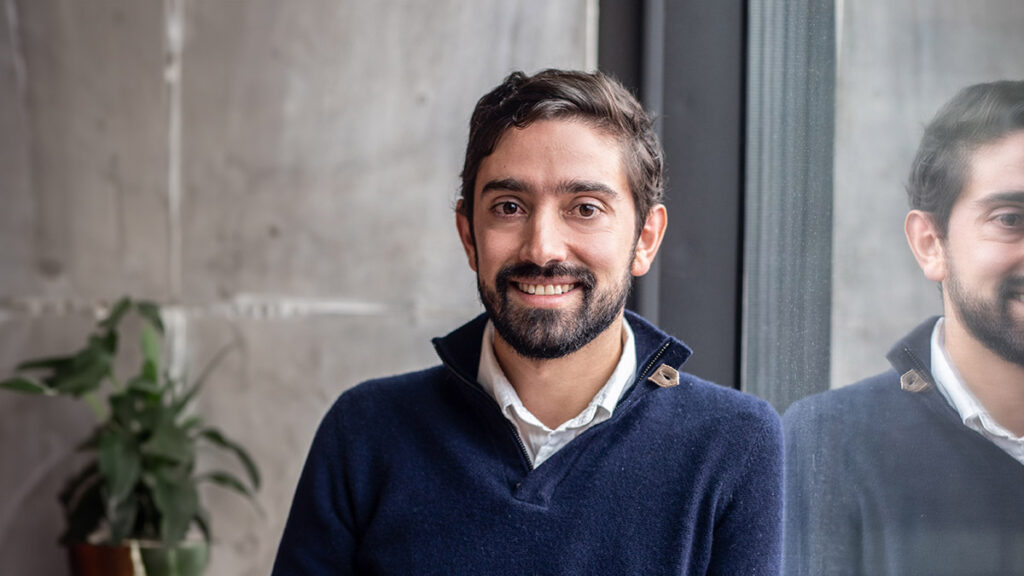Today we’re talking with Salomón Zarruk, CEO of Mono, who shares his transition from the legal world to starting his own fintech. After starting his career at a law firm, Salomón launched his own business in the food industry, which he later sold. Later, after working in the fintech sector in Colombia and completing a master’s degree in London, he founded Mono in 2020 during the pandemic to offer fintech infrastructure solutions for companies looking to simplify their operations.
How did Mono come to be?
Mono started by offering business bank accounts. However, we made an organic pivot last year because our clients were asking for a different product. Our client feedback led us to focus on what is now our main offering: fintech infrastructure for companies.
What does the new product consist of?
Our current product is embedded fintech for companies. We provide infrastructure that allows companies to launch cards, money transfers, or digital wallets without needing to develop these products internally. In just a matter of days, Mono customers can implement complex fintech solutions with our technology
What is the ideal customer profile for Mono, and what specific needs are you addressing with your services?
Our ideal customers are companies that need to develop fintech products but don’t have technology as part of their core business. For example, companies in sectors like logistics, e-commerce, dropshipping, or cooperatives that want to offer digital wallets, cards, or transfers but can’t develop these products themselves. We provide the APIs and all the infrastructure needed so they can launch fintech products within weeks.
At what point did you decide to focus on offering financial infrastructure instead of operating as a neobank? What led you to that decision?
We started out by offering a bank account for SMEs, but three external factors made us pivot. First, the tax authority (DIAN) didn’t allow non-AAA banks to process tax payments, forcing our clients to switch banks. Second, we couldn’t offer international transfers because our partner bank didn’t have SWIFT. Lastly, the network effect of major banks with free real-time transfers affected us. Additionally, our clients began requesting fintech infrastructure, and we decided to focus on that.
Tell me a bit about the features you have now. What does a customer get when they implement Mono’s infrastructure?
We offer infrastructure in four main areas:
- Visa Cards: We allow our clients to issue virtual and physical cards, and launch Google Pay and Apple Pay. We handle all the transaction authorization logic to determine when to approve or decline transactions and meet financial compliance requirements, making it easy for companies to launch card products without technical headaches.
- Transfers: We provide ACH and real-time transfers. Our team handles all the backend logic, enabling clients to offer these transfers without having to develop them from scratch.
- Virtual Balances: We’ve developed a ledger that manages balance accounting for companies. This product is ideal for companies wanting to offer digital wallets to thousands or millions of users, as it supports transfer and card functionalities.
- White-label Wallet: We provide a fully developed digital wallet, ready for companies to launch without writing a single line of code. This wallet supports balances, transfers, and cards, and in the future, it will integrate cash-in and cash-out networks.
Is this only in Colombia, or do you have a presence in other Latin American countries?
We’re currently operating in Colombia with our card infrastructure. We’re about to expand to Mexico and Peru, and we plan to take our solution to other countries next year. Our vision is to make our infrastructure available across Latin America, to help more companies launch fintech products quickly
From the moment a client starts working with you, how long does development take?
The development time depends a lot on the client. Our APIs are designed to be very easy to integrate, especially for companies with a tech-driven core. We’ve had clients launch in as little as two weeks, while others have taken longer due to internal processes. On our end, everything is set up to facilitate quick integration, and we can provide production keys fast, usually within weeks.
From your perspective as a lawyer, how do you view fintech regulation in Colombia?
Colombia is one of the most advanced countries in the region for fintech regulation. We’ve seen significant progress, such as the development of the regulatory sandbox, which my partner Sebastián and I were the first to participate in while working at another fintech. There are also key initiatives like open finance and the immediate payment system from the Central Bank. Additionally, the digital correspondent model has been essential for enabling banking as a service, which allows Mono to operate supported by a bank. I’m very optimistic about the regulatory future in Colombia.
What are the biggest challenges Mono faces today, and how are you working to overcome them?
Our biggest challenge is that our product is inherently robust and complex because we handle clients’ money transactions. While we don’t hold the funds directly, we deal with debit and credit transactions, so even a small error, like a one-cent discrepancy, could cause chaos in our clients’ accounting. This forces us to refine and sophisticate our product to the maximum. Although the market demands speed, we need to move cautiously, as we did when developing the ledger, which took nearly a year to perfect.
What can we expect from Mono in the next 6 months to a year?
In the next 6 to 12 months, we’ll focus on growth, developing new products, integrating more clients, and expanding our operations. At the end of last year, we closed with less than US $1M in annualized revenue, and this year our goal is to reach $4M. We’ve already passed breakeven, and although our profits are still modest, we’re happy that Mono is self-sustainable. The next step is to keep growing and generate higher returns.
This post is also available in: Español (Spanish)
